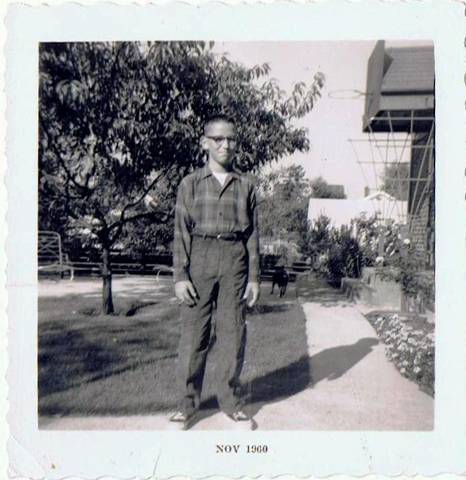The Voice of a Writer
In Response to a Question
From Kailey: “I'll never get tired of your voice! It's conversational, intelligent and comical. Speaking of which, do you have any suggestions for someone who wants to improve their voice? Or, do you think after most writers have found a voice they're comfortable with it'll always sound repetitious to them, even if others enjoy it?”
I love this question. I was going to answer it in the Mailbag, but it’s such a great question I decided it deserves its own article. So here it is. Thank you, Kailey! You can find Kailey under the name Social Thoughts on HubPages. I invite you to visit her site. She is a very insightful young lady and quite frankly I am jealous of her mind.
I’m flattered by Kailey’s compliment about my voice. Her compliment and question got me thinking. How did my voice develop? But first, we need a definition.

What Is Voice in Writing?
I’m going to give you a very short definition, and then I’ll go into a little detail.
Your writing voice is you in words.
That will be twenty-five bucks, please.
Your writing voice is your attitude. Your writing voice is your tone. Your writing voice is your personal style.
Your writing voice is all of those things and so much more. It is affected by your experiences in life. It is affected by the way you see life.
When I started writing I made a conscious decision to have a conversational voice. I am not an intellectual. Talk to me in my yard and you’ll instantly feel comfortable. I’m like an old slipper that just feels wonderful when you put it on. There are more expensive slippers in stores. There are great shoes, boots and sandals, but none of them feel as comfortable as my slippers.
I want people to feel like they are reading an article written by an old friend, the same way they feel when they speak to me in person.
I’m also somewhat of a philosopher. I gained, early on, a great appreciation for the works of James Lee Burke. His views of life are constantly intertwined in his stories, and I love that I have to think about life while reading one of his mysteries. That’s how I wanted to write my novels.
So those were the two biggest influences on my writing voice when I first started out.
But Kailey wants to know how a voice develops, so let’s take a look at that.

Ways to Develop Voice
No matter who you listen to on this topic, you are going to hear that a writer needs to read a lot and write a lot in order to develop their voice. I agree, but there are other things you can do that will be helpful.
Write from your heart! Never forget that we all share the five senses. They are the common ground we can all relate to. We have all shared common experiences, common pains and common triumphs. I promise you, if you learn to share your emotions and allow them to run free in some free writing, your voice will develop much quicker.
Practice writing like you are talking to a friend. See if you can’t translate your conversational language into written language. Don’t try to use big words you normally wouldn’t use. It will sound forced and stilted.
Experiment with styles. Break free from your comfort zone and try different approaches to writing. I read a novel by Tom Robbins once and decided to write a novel in a similar voice. I still find some of his voice in my writings today. I also love free-flow verse and I’ve experimented with that as well. Or maybe you enjoy writing stories for children. If that is the case, then try writing a story for adults or young adults. The goal is not to have you write for a new market. The goal is to get you to spread your wings and fly out of your cocoon of safety.
Write freely. I think, oftentimes, we can over-think a project or task. Sit down and practice writing without worrying about rules. Just let it flow. No barriers, no concern about style….just write.
Can Voice Change?
Without a doubt voice can change and I think it is necessary that it does. I think voice becomes enriched as we live longer and have more experiences. If I had written a book when I was twenty-five, my voice would have been considerably different from the voice I have today. I have had forty years of life since then. I’ve had forty years of joys and tears, pain and love, since then. You better believe my voice has changed during that time.
I think our voice changes gradually as well. I am not the same writer today as I was a year ago. I think the flow of my writing is pretty much the same (rhythm), but the intangible tone of my writing may have become a bit “darker” for lack of a different descriptor.
Can We Write with Different Voices?
Yes, we can, and I’ll add that I think we should.
Obviously, when I write for customers, I’m not writing in the same voice I use for my novels. That would be silly and unprofessional….and a good way to lose customers.
When I write articles for HubPages, my voice is not the same as when I write my novels.
Situations dictate that we use different voices. Writing a series of articles to be read by retirees might require a different voice than a series of articles written for young twenty-somethings, so my audience needs to be taken in consideration as well.
This falls under that experimentation thing I mentioned earlier. I think that any writer who only writes in one voice will, over time, because a very boring writer. Try new voices and new styles. Through experimenting with other voices you just might find your own.

Did All That Help Anyone?
I’m going to leave you with one other thing to think about. Does your personality shine through in your writing. Do you want it to?
I ask those questions because of a friend I know who is almost a recluse. She stays at home, rarely leaves, most definitely has a limited social schedule, has no husband and does not date. She is, quite frankly, a rather bland individual who, when you meet her, will threaten to put you to sleep with her personality.
And she writes terrific romance novels.
I have no idea how she does it.
Your personality may or may not be a liability. Decide which it is and whether you want it to become a part of your writing voice.
Kailey, there you have it. Thank you for the question. I hope this helped you and others who have wondered about the same thing.
Now, if you’ll excuse me, I have to go practice my writing.
But before I go…..
It just dawned on me there was a second part to Kailey’s question: “Or, do you think after most writers have found a voice they're comfortable with it'll always sound repetitious to them, even if others enjoy it?”
I don’t think there is any danger in your voice sounding repetitious if you keep trying to grow as a writer. I think dissatisfaction comes from being lazy and settling for the status quo. Keep spreading your wings and you’ll never be in danger of putting yourself to sleep.
What kind of voice do you want? Answer that question and then go for it!
Now I’m definitely leaving.
2015 William D. Holland (aka billybuc)
“Helping writers to spread their wings and fly.”











